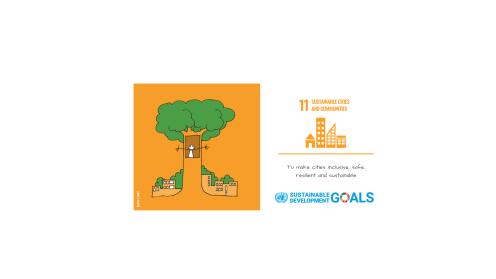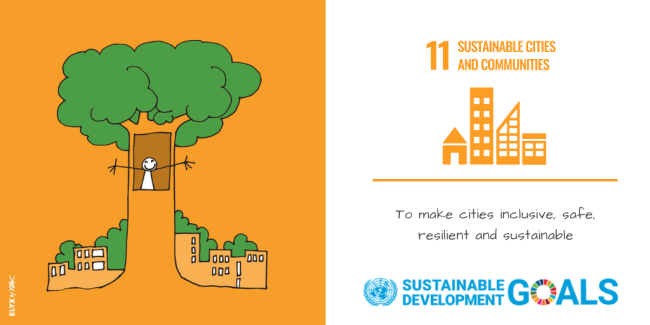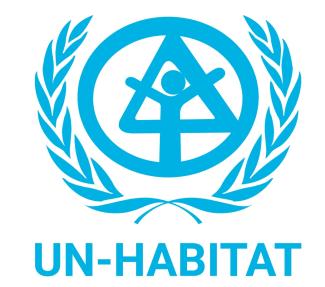About
Against a backdrop of global crises that are having severe effects on cities, participants at the Second Session of the UN Habitat Assembly addressed the need for a sustainable urban future through inclusive and effective multilateralism and adopted 10 resolutions, five decisions, and a Ministerial Declaration to further the implementation of the New Urban Agenda and the Sustainable Development Goals.
Final report
Summary report 5–9 June 2023
All coverage
Half of humanity lives in cities today, and this is expected to grow to 60% by 2030. In addition, the percentage of people living in cities of half-a-million inhabitants or more is projected to grow to 38% by 2030, up from 26% in 2000. While cities occupy just 3% of the Earth’s land, they account for 60-80% of energy consumption and 75% of carbon emissions. As a result, many of the solutions to some of the greatest challenges facing humanity—poverty, climate change, energy, healthcare, education, access to drinking water and sanitation—must involve cities.
The UN system’s focal point on cities and other human settlements, UN-Habitat, will discuss these issues and more during its second Assembly. Under the theme of “A sustainable urban future through inclusive and effective multilateralism: Achieving the Sustainable Development Goals in times of global crises,” the Assembly will review progress in the implementation of the New Urban Agenda and the 2030 Agenda for Sustainable Development.
During the meeting, there will be high-level thematic debates and discussions on:
- Universal access to affordable housing: exploring mechanisms to achieve the universal right to adequate housing and move towards removing existing barriers to affordable housing
- Urban climate action: exploring realistic urban pathways to achieving the global commitment to stay within 1.5˚C limit on rising temperatures by 2030
- Urban crises recovery: discussing how to empower cities to respond to urban crises and support national recovery efforts
- Localization of the Sustainable Development Goals (SDGs): examining local actions needed to advance the implementation of SDGs and targets contained in the 2030 Agenda
- Prosperity and local finance: exploring policies and market mechanisms to ensure financial flows directed towards urban development and reach local levels
The Assembly President, drawing upon these discussions, will prepare a summary of the main issues raised and the conclusions or recommendations made during the dialogue.
The Assembly is due to consider several draft resolutions on:
- International guidelines on people-centered smart cities;
- Accelerating transformation of informal settlements and slums by 2030;
- Biodiverse and resilient cities; and
- World Clean-Up Day.
The Assembly is also expected to:
- consider the report of the UN-Habitat Executive Director on the implementation and work programme of UN-Habitat and the implementation of resolutions and decisions adopted by the First Assembly;
- discuss a draft stakeholder engagement policy;
- consider a progress report on the implementation of the New Urban Agenda and the 2030 Agenda;
- consider the reports of the 10th and 11th sessions of the World Urban Forum;
- consider the Executive Board’s recommendation to extend the existing 2020-2023 UN-Habitat strategic plan through 2025, and options presented by the Executive Director to approve the next strategic plan for the period 2026-2029; and
- elect a new Executive Board and a new Assembly Bureau.
Created in 1976, UN-Habitat’s mission is to promote socially and environmentally sustainable human settlements development and the achievement of adequate shelter for all. In 2018, the United Nations General Assembly in its resolution A/RES/73/239 decided to dissolve the Governing Council of UN-Habitat and to replace it with the UN Habitat Assembly (the Assembly) composed of universal membership.
The UN Habitat Assembly is the highest-level decision-making body concerning urbanization and human settlements matters worldwide. The Assembly convenes every four years with the aim to tackle the most pressing human settlement challenges faced by the world today and to preserve and rehabilitate the urban environment.
The second session of the United Nations Habitat Assembly will be held in a hybrid format at the UN Office at Nairobi from 5-9 June 2023. Only plenary sessions will be held in hybrid format.
The Earth Negotiations Bulletin (ENB) writers for this meeting are Keith Ripley, Jennifer Lenhart, Ph.D., Wangu Mwangi, and Kyle Wiebe. The Digital Editor is Mike Muzurakis. The Editor is Pamela Chasek, Ph.D.
View past and future events
Past event
1st Session of the Habitat II Preparatory Committee
Past event
1994 Year-end Update on Habitat II
Past event
2nd Session of the Habitat II Preparatory Committee
Past event
1995 Year-end Update on Habitat II
Past event
3rd Session of the Habitat II Preparatory Committee
Past event
Habitat II
Past event
20th Session of the Governing Council (GC-20) of UN-HABITAT
Past event
3rd Session of the World Urban Forum (WUF3)
Past event
7th Session of the World Urban Forum (WUF7)
Past event
Habitat III Informal Hearings with Stakeholders
Past event
9th Session of the World Urban Forum (WUF9)
Past event
1st Session of the UN Human Settlements Programme (UN-Habitat) Assembly
Past event
10th Session of the World Urban Forum (WUF10)
Past event
11th Session of the World Urban Forum (WUF11)
Past event
2nd Session of the United Nations Habitat Assembly
To receive free coverage of global environmental events delivered to your inbox, subscribe to the ENB Update newsletter.


